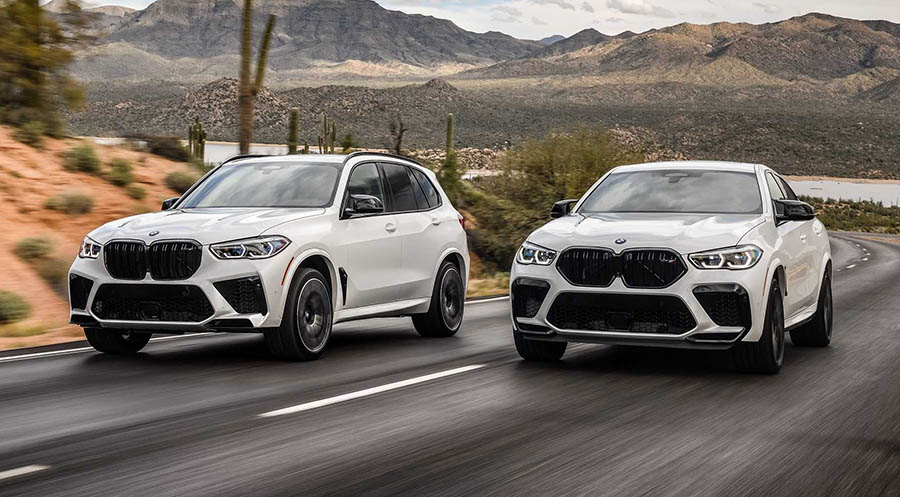With the tax increase for imported vehicles, Ankara is asking new car buyers to pay even more. The government makes a lot of money with it, but risks a market collapse.

Anyone who can afford a new car in the corona crisis is probably wealthy. Anyone who buys a new car in Turkey during these times must be rich. The government of President Recep Tayyip Erdogan has increased a special tax on certain consumer goods, which is particularly effective for imported luxury vehicles.
For vehicles over two liters and a tax base of over 170,000 lira, the tax increases from 160 to 220 percent. That means: The net list price is more than double just for the luxury tax on top. Then VAT is calculated, which in Turkey is 18 percent.
The tax also applies to hybrid vehicles with combustion engines and electric motors. Far fewer taxes are due for purely electric vehicles: up to an output of 85 kilowatts it is three percent, up to 120 kilowatts seven percent and above 15 percent. For comparison: the BMW i3 has a maximum output of between 125 and 135 kilowatts, depending on the engine.
The VW Passat has so far been one of the best-selling import models in Turkey. While the basic price for the entry-level model with 1.5 liter displacement in Germany is around 30,200 euros, in Turkey you had to pay around 36,200 euros by the end of August. With the new tax increase, there is another 4,500 euros on top: The new car price without special equipment is now 40,700 euros.
It becomes even clearer with high-priced luxury cars like the BMW 7-series. The German base price of 87,300 euros was previously compared to a list price of 198,000 euros for the entry-level model in Turkey. With the tax increase, the vehicle now costs 264,600 euros in Turkey – without special equipment. As usual in Turkey, only war veterans, relatives of those killed in war and people with disabilities are exempt from the tax.
The “special consumption tax” (Turkish “Özel Tüketim Vergisi”, ÖTV) has existed since 2002 and primarily taxes luxury goods, which include cars, but also refrigerators. Since 2017 it has been increased regularly in the wake of the economic downturn. With the presidential decree of August 31, it was raised again.
For cars with a displacement of less than 1.6 liters and a tax base of less than 130,000 lira, the luxury tax has been increased from 60 to 80 percent. For cars up to two liters and a tax base of up to 170,000 lira, the tax is now 150 instead of 110 percent.
Government wants to help domestic producers
In the case of cars with small engines and a lower list price, however, there is a slight relief. The lowest tax rate of 45 percent now applies to vehicles with a net sales price of up to 85,000 lira. Previously this limit was 70,000 lira.
Vehicle sales hardly decreased until the beginning of the Covid-19 pandemic. Import vehicles were also doing well until then. The aim of the action is clear, however: On the one hand, the Turkish state needs money. The government of Head of State Erdogan has recently massively increased taxes on alcohol products and cigarettes.
On the other hand, the government in Ankara wants to urge consumers to buy smaller and locally produced cars. The tax increase is therefore bad news for producers of powerful automobiles like Volkswagen or BMW, but good news for local manufacturers like Fiat, Renault or the Turkish manufacturer Tofas. Its shares rose after the announcement of the new tax rates by up to ten percent.
Because this time the price increase is immense, the market could be turned upside down. Alper Kanca, President of the Association of Turkish Automotive Suppliers (Taysad), believes the tax hike will reduce the size of the automotive market in Turkey. On the other hand, he also accepts the challenge the state is now facing.
Because of the Covid-19 pandemic, tax revenue fell anyway, while the state has to spend more on hospitals and short-time working regulations. “Anyone who can still buy vehicles in such a phase is wealthy,” concludes Kanca, “and should then also pay higher taxes”.
The President of the Oyder Automobile Association, Murat Sahsuvaroglu, also warns of an implosion in the new car market. Of ten cars sold in Turkey, six are imported vehicles with an average sales price of over 130,000 lira, he emphasizes. He fears that customers who have already paid a deposit could withdraw it.
Industry has lowered its forecasts
Overall, the industry has now adjusted its forecasts because of the tax hike. While the sector lobbyists were still assuming total sales of 750,000 vehicles by the end of the year, the forecast is now around 600,000, reports the Turkish business newspaper Dünya. “The increased luxury tax immediately resulted in the cancellation of new vehicles that will only be delivered and paid for after the new tax rates come into force,” the newspaper writes.
The Turkey boss of Peugeot, Ibrahim Anac, in turn believes in a shift in the market towards smaller, cheaper vehicles. “There will be a new balance.” Ford’s Vice Director in Turkey, Özgür Yücetürk, believes that advertising campaigns and special financing offers could save the industry.
Most recently, state banks had given extremely cheap consumer loans in the wake of the corona crisis. But this action has now been discontinued after the value of the lira had been diluted by the many new loans. “We want to continue our favorable financing offers”, announces Yücetürk.









